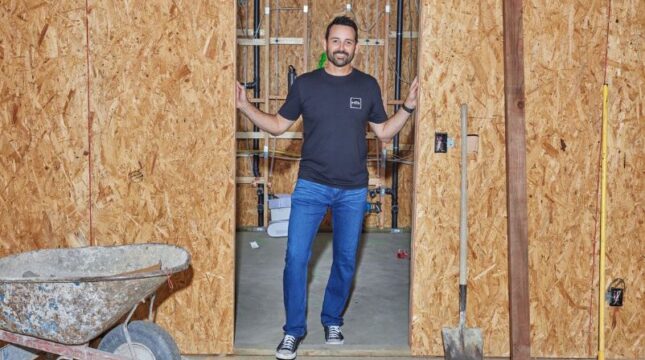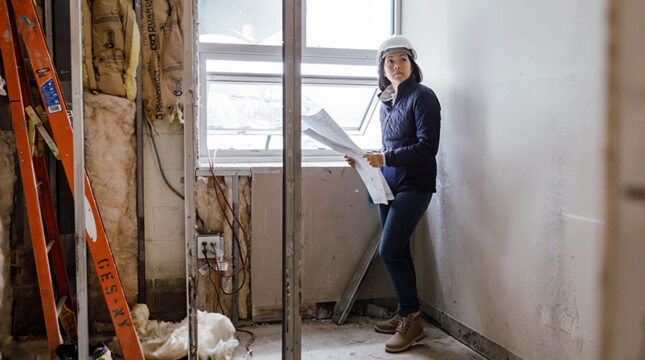1. Certified construction manager
If you’re just starting, you’ll need to get some experience before earning this certification. But if you’ve worked in the industry for several years, becoming a Certified Construction Manager (CCM) can give you an advantage over your competitors.
The CCM certification is designed for workers who lead teams. It shows you know how to plan and design a project, manage costs and meet deadlines while maintaining quality control and safety standards.
Workers who meet one of the following sets of requirements are eligible for the Certified Construction Manager certification.
- You have a bachelor’s degree and four years of experience as the “person-in-charge” on job sites.
- You have an associate’s degree, four years of experience as the “person-in-charge” and an additional four years of general design or construction experience.
- You have eight years of general design or construction experience and four years of experience as the “person-in-charge.”
The Construction Management Association of America issues the CCM certification to construction workers who pass an in-person exam. You also must provide at least two references who can verify your work experience.
You must recertify every three years by earning continuing education credits or retaking the exam.
2. PMP certification
Do you have experience managing projects with lots of moving parts? The Project Management Professional (PMP) designation shows you have the skills to lead project teams effectively to get the job done.
The Project Management Institute issues the PMP credential. It isn’t specific to the construction industry but well-respected across all industries.
To qualify, you must have one of the following:
- A four-year degree, three years of experience leading projects and 35 hours of project management education or CAPM® certification
- A high school diploma or an associate’s degree, five years of experience leading projects and 35 hours of project management education or CAPM® certification
If you meet the eligibility criteria, you need to pass an exam to receive your PMP certification.
To maintain it, you must earn 60 professional development units (PDUs) every three years. You can earn PDUs by participating in continuing education classes, volunteering or teaching.
3. CPC designation
The Certified Professional Constructor designation is the highest level of certification you can achieve in the American Institute of Constructors (AIC) Constructor Certification Program.
When you or the foreman has this certification, your clients can rest assured knowing you can effectively oversee projects, control costs, manage resources, follow proper employment practices and adhere to the AIC’s code of ethics.
To earn the CPC designation, you must meet the qualifications for and have passed (or been exempted from) the Construction Fundamentals exam.
You also need four more years of professional experience beyond what’s required to sit for the Construction Fundamentals exam.
If you pass the CPC exam, you must participate in AIC’s continuing professional development program, earning 32 credit hours every 24 months to maintain your certification.
4. OSHA certificate
Everyone on a job site needs proper safety training to meet OSHA regulations. But not everyone takes the extra step of getting certified. This additional certification shows clients and employees that you’re serious about safety. Plus, your state might require it.
OSHA offers two courses:
- OSHA 10-Hour Construction Industry Outreach Training Program
- OSHA 30-Hour Construction Industry Outreach Training Program
The 10-hour program is designed for entry-level construction workers. It provides basic education on general safety awareness by teaching workers how to identify and prevent dangerous conditions on the job.
The 30-hour program is designed for people who supervise employees/subcontractors and those who are responsible for workplace safety, such as safety managers. It offers a more in-depth look at the safety information you need to stay OSHA compliant.
To earn either OSHA training certificate, you must pass the quizzes at the end of each training module, plus the final exam.
5. LEED certification
LEED-certified buildings are more efficient, produce lower carbon emissions and are better for the environment than those that aren’t.
Demand for LEED-certified buildings has remained stable throughout the pandemic, indicating that sustainable building projects are probably here to stay.
If you want to expand your business to work with environmentally-conscious clients, a LEED certification from the U.S. Green Building Council could be a good investment.
The Council offers two certifications:
LEED Green Associate
Workers who earn the LEED Green Associate certification learn the basics of green building principles, including how to help others implement them in construction projects.
You must pass a two-hour, 100-question multiple-choice exam to earn the certification. And you must accrue 15 hours of continuing education credits every two years to maintain it.
LEED AP with specialty
The LEED AP with speciality credential shows you have advanced knowledge of green building practices and a specific LEED rating system. There are five specialties to choose from:
- Building design and construction
- Operations and maintenance
- Interior design and construction
- Neighborhood development
- Homes
You must earn a LEED Green Associate certification before obtaining the advanced certification. Previous experience working on a LEED-registered project is also recommended.
You must pass an exam to earn the certification and accrue 30 continuing education credits every two years to maintain it.
6. ACI concrete certification
Many building codes require you to have an ACI-certified person onsite. But even if it’s not required, getting a certification from the American Concrete Institute (ACI) can help enhance your credibility with prospective clients.
The ACI has 30 certification programs, so you can choose the most applicable to your business.
To earn a certification, you must pass an exam and meet the work experience requirements, which vary by program.
7. Crane operation
If your work routinely requires cranes, getting certified can help you stand out from the crowd, minimize risk and enhance safety.
The National Commission for the Certification of Crane Operators offers 13 different certifications. The one that’s right for you depends on the equipment you need to do your job.
To earn your certification, you must be at least 18 years old and pass a written and practical exam within 12 months of each other.
The certification is good for five years. To recertify, you must log enough operating hours or retake the exam.
8. Certified safety manager
Job site accidents can lead to project delays and increased costs. Having a certified safety manager on your team shows clients you take safety seriously and can help minimize on-the-job risks.
With a certification from the National Association of Safety Professionals (NASP), you’ll learn how to:
- Enhance safety on the job
- Improve employee safety training
- Identify and prevent potential hazards
- Determine the cause of accidents and implement procedures to reduce them in the future
You need several years of experience on the job to qualify, and many applicants have a bachelor’s degree in occupational health and safety.
To become a certified safety manager, you must take a 40-hour course and pass a test. You need to recertify every three years by retaking the course and exam.






